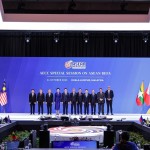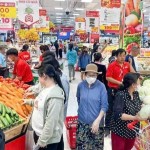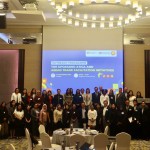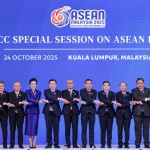Total number of posts 463.
After receiving the petition for anti-dumping and countervailing duty (CVD) investigations on solar panels imported from Thailand, Malaysia, Cambodia and Viet Nam, in October 2024, the US Department of Commerce (DOC) issued a preliminary conclusion of this investigation.
The U.S. Department of Commerce (DOC) has issued a preliminary determination in the countervailing duty investigation of solar panels (HS codes 8501.61.0000, 8507.20.80, 8541.42.0010, and 8541.43.0010) imported from Viet Nam, Cambodia, Malaysia, and Thailand.

DOC has determined that there has been a surge in imports of the product under investigation in this case after the case was initiated. DOC compared the import volume in 2 periods: before the Petitioner filed the petition (01/2024 - 04/2024) and after the Petitioner filed the petition (05/2024 - 08/2024) and found that there was an increase in imports of at least 15%. Therefore, DOC will apply the preliminary tax retroactively within 90 days before the date of the Preliminary Conclusion or from the date of the notice of initiation of the investigation is issued for the 04 non-cooperative companies mentioned above and the remaining companies (except for the 02 mandatory defendant companies).
For Viet Nam, the preliminary subsidy tax rate for Vietnamese exporting enterprises is determined according to 04 different levels including:
+ Boviet Solar Technology Co., Ltd: 0.81% (reaching the minimum De minimis level and considered the tax rate is 0%).
+ JA Solar Viet Nam Co., Ltd and its member companies (JA Solar PV Vietnam Co., Ltd, JA Solar NE Vietnam Co., Ltd): 2.85%.
+ 04 companies including: GEP New Energy Limited Company, HT Solar Vietnam Limited Company, Shengtian New Energy Vina Co., Ltd and Vietnam Green Energy Commercial Services Company Ltd: 292.61% (tax rate is calculated based on available adverse information, because these companies did not respond to the US Department of Commerce's Volume and Value Questionnaire, so they were concluded to be non-cooperative).
+ The remaining companies: 2.85% (calculated according to the rate of JA solar company).
For Cambodia, Malaysia and Thailand, the preliminary subsidy rates for exporting enterprises from these countries are respectively: (1) Cambodia: 8.25% - 68.45%, (2) Malaysia: 3.47% - 123.94% and (3) Thailand: 0.14% - 34.52%.
Currently, the US petitioner has proposed that DOC investigate 6 new alleged programs related to cross-border subsidies with the desire to impose additional subsidy taxes on Vietnamese enterprises, including: (1) China providing Silicon Wafers at lower than normal prices to Vietnamese solar panel manufacturers; (2) Export credits; (3) China providing silver glue/silver resin at lower than normal prices to Vietnamese solar panel manufacturers; (4) China providing solar control glass at lower than normal prices to Vietnamese solar panel manufacturers; (5) China supplied aluminium solar panels at below-normal prices to Vietnamese solar panel manufacturers; and (6) China supplied junction boxes at below-normal prices to Vietnamese solar panel manufacturers. According to the investigation process, after the preliminary conclusion, the US Department of Commerce can still investigate new subsidy allegations and will conduct on-site inspections of enterprises and the Vietnamese Government to verify the information provided (expected in December 2024). Therefore, enterprises need to focus and fully cooperate with the DOC to be able to maintain the preliminary results until the final stage of the case. It is expected that the DOC will issue its final subsidy determination on February 10, 2025.
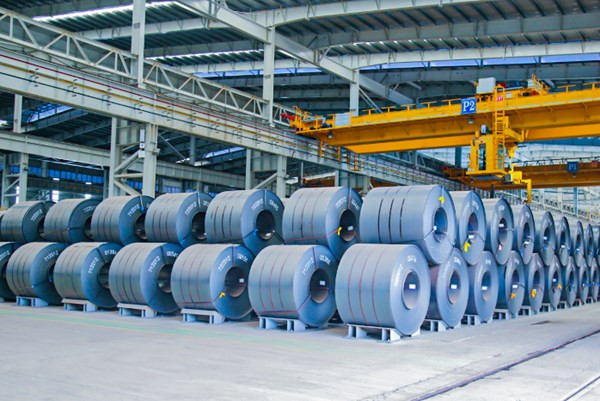
Experts say that with Republican candidate Donald Trump winning the election to officially become the 47th President of the United States, stronger and protectionist policies will appear. In the event of increased US-China trade tensions, Viet Nam and ASEAN countries may benefit from the trend of shifting production out of China, but this will also come with the risk of increased investigations related to dumping on many products originating from ASEAN in general and Vietnam in particular. On that basis, Viet Nam needs to resolutely and strictly implement the prevention of trade fraud, especially origin fraud to illegally evade trade defence measures, especially for some products such as steel, aluminium, textiles, seafood, etc. This requires strict supervision and management by government agencies and serious compliance and active cooperation from businesses, avoiding the situation of "one bad apple spoiling the barrel". For businesses that are subject to DOC's ruling, the Trade Remedies Authority (TRA) recommends that businesses carefully study the DOC's preliminary conclusion and submit comments on the preliminary conclusion and other information as necessary within the deadline and guidance of the DOC; prepare and cooperate well with the DOC in the upcoming new accusation programs as well as the on-site verification process to limit the possibility of tax increases in the Final Conclusion; and closely coordinate with the Ministry of Industry and Trade for timely advice and support.







